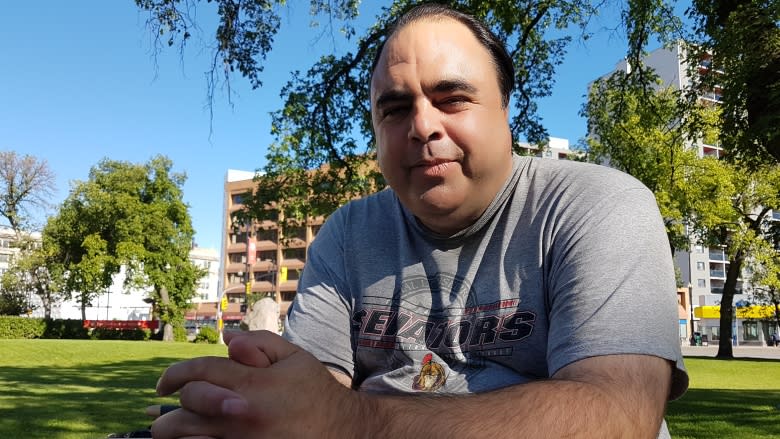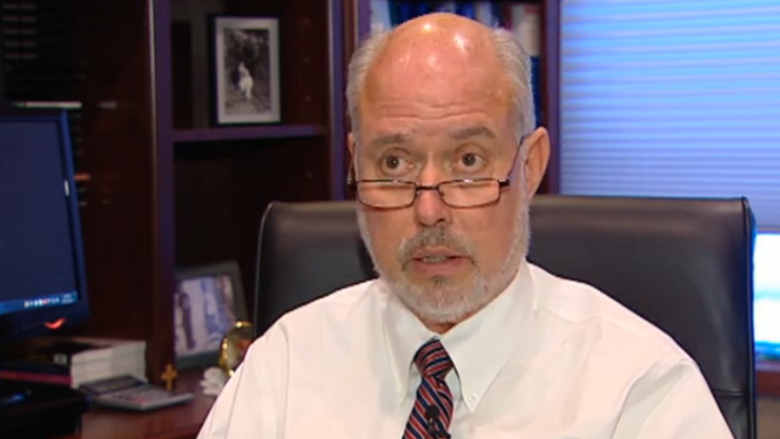Back to school with mental illness: Winnipegger with schizophrenia to hit the books again
Like a lot of people this time of year, Bill Hunter is getting ready to go back to school.
"I'm getting there. Every day I try to do a few things to help me get there," said the 48-year-old Winnipegger.
Hunter has schizophrenia and plans to enter the actuarial program at the University of Manitoba. He wants to take his first courses in the winter term, beginning in 2018.
The last time Hunter went to school he was in 20s, when he studied biology for three years at the University of Winnipeg. He said it was during that time that he started struggling and stopped taking classes.
He was diagnosed with schizophrenia in his early 30s and hasn't been back to school since.
"In a lot of ways, it robbed me of some very important years of my life," he said.
According to Chris Summerville, the executive director of the Manitoba Schizophrenia society, experiences like Hunter's aren't uncommon.
"We know that 70 per cent of people living with schizophrenia desire to have meaningful work, and part of that is pursuing education to obtain a meaningful job," Summerville said.
"And yet the reality is only 30 per cent of people are in employment that have schizophrenia."
Funding essential
The Manitoba Schizophrenia Society says the mental illness will affect about 10,000 Manitobans per generation and most frequently occurs in people aged 16 to 30.
Summerville said there are two major barriers facing people with schizophrenia who want to work. The first is hesitancy by prospective employers to hire people with the mental illness.
The other is not being able to complete or acquire secondary education, he said. Because the disease often hits around the time of young adulthood, it can set back schooling.
"Their schizophrenia may have delayed their high school and delayed entry into college and delayed employment," he said.
"…When they're well enough to return to school, many find financial hardship."
Summerville said scholarships targeted at people with schizophrenia can make it easier to get in the door — even if they don't offer a lot of money.
"You can't put a dollar figure on the message," he said. "It's a very positive message that's saying that people with schizophrenia can get better to the degree that they can return to work."
'We have goals just like everyone else'
Hunter receives funding from the province's marketAbilities project and every year, two Manitobans with schizophrenia are supported by the Non-Insured Health Benefits for First Nations and Inuit Peoples program.
There's also the Yes2Me scholarship, a $1,000 scholarship funded by pharmaceutical company Otsuka Canada and available to students with schizophrenia across Canada to use at the school of their choice. When it was introduced in 2015, the program offered funding for one Manitoba student. This year, it's available to four students.
Hunter said scholarships that target people with schizophrenia feel like a vote of confidence.
"It shows me that I can be a little bit more visible with what I'm doing in life," he said.
After he's finished school, Hunter's goal is to work as an actuary for Great-West Life in Winnipeg.
He wants people to know that life with schizophrenia isn't just about illness.
"What I want people to know is we have goals just like everyone else. Just a house, home, kids," he said.



